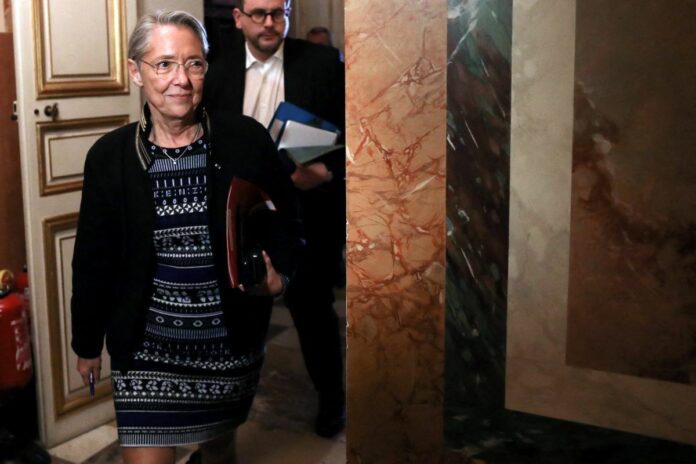On Thursday March 16, Prime Minister Elisabeth Borne engaged the responsibility of her government in the context of the application of article 49, paragraph 3 of the Constitution, thus pushing through the text of the pension reform in force. Following which a motion of censure was tabled by the parliamentary group LIOT, and put to the vote on Monday, March 20. At the end of the vote, the verdict falls: the government is certainly not overthrown, but Elisabeth Borne narrowly escaped a motion of censure: only 9 votes in favor of the motion were missing.
Since then, the French government has been more weakened than ever since Emmanuel Macron entered the Elysée. Faced with the demands of the unions, behind which a majority of French people line up concerning the withdrawal of the much decried reform, the executive continues to turn a deaf ear. On March 22, Emmanuel Macron spoke on the 1 p.m. newspaper of TF1 and France 2, an interview during which the president reaffirmed the firmness of his position.
During this interview, the Head of State, among other things, spoke about the future of the one who crystallizes the resentment of the French at his side within the government. Asking her an ultimatum in veiled words according to some, he instructed her to find a majority for his camp in the National Assembly, as reported by our colleagues from the Huffington Post.
Elisabeth Borne therefore began her canvassing of the groups and parties closest to the presidential party: namely, the traditional right.
Emmanuel Macron therefore called on his Prime Minister to proceed with an “enlargement” in order to obtain a majority in the National Assembly. His gaze naturally fell on Les Républicains, a party in whose ranks many wanted to vote in favor of pension reform. The party’s president, Eric Ciotti, immediately took the floor, ruling out any possibility of joining a presidential majority.
He invoked the fact that, the day after the last legislative elections, there had been no question of it, neither on his side nor on that of the president, and that the facts of the problem had not changed since. He therefore considers himself to be part of the opposition to Macronie. From Monday, April 3, Elisabeth Borne must meet with parliamentary groups and opposition parties. Discussions which, according to the position of Eric Ciotti, will probably struggle to succeed.
The head of government is therefore in an extremely perilous situation. She therefore symbolically promised not to use 49.3 in the future… except for budget bills.
Faced with the mobilizations which do not dry up, the government wants to do everything to turn the page on pension reform, which it continues to describe as non-negotiable. While she has already used it more than 10 times since joining Matignon, Elisabeth Borne therefore promises not to use 49.3 in the future, except for questions of budgetary texts. It would thus sign an admission of failure, risking losing the little legitimacy enjoyed by the reform, as reported by our colleagues from Opinion.
Barely 48 hours before this promise, the Minister of Labor Olivier Dussopt declared on the microphone of BFMTV: “We may have to reuse 49.3”. Enough to add fuel to the fire, just 4 days from yet another day of interprofessional mobilization for which an unprecedented number of law enforcement agencies are mobilized, as announced by Gérald Darmanin according to Reuters.















